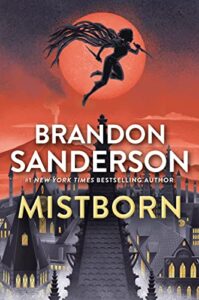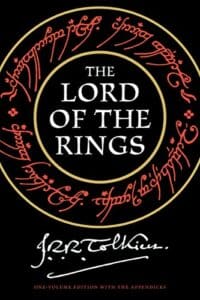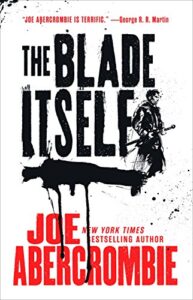A while ago, noted writer (and teacher of writers) David Farland wrote a series of emails on magic systems in fantasy. It was an interesting read. He mentions the current king of magic systems (his former student) Brandon Sanderson.
Sanderson is famous for his laws of magic, the most famous of which says: “an author’s ability to solve conflict with magic is directly proportional to how well the reader understands said magic.”
This is probably true, if only because it’s generally applied to the protagonists of the story. I’m going to say upfront, however, that I generally don’t seek to emulate his style.

Don’t get me wrong. I respect Sanderson’s mastery of the craft. I was first exposed to Sanderson through his Mistborn series which I loved at the time (my taste has sense grown in the direction of darker, more mature books generally termed grimdark). Sanderson is a brilliant plotter and worldbuilder, and I very much respect his magic systems as interesting literary creations.
But the truth is, I don’t even really like the term “magic system.” The problem with the word “system” is it naturally implies a scientific breakdown of magic. The more magic is codified and explained to the readers, the less magical it becomes.
In my article on grimdark fiction, I offered that the supernatural in dark fiction was often scary, ineffable, or generally awful. Moreover, in retelling mythology and folklore, I often find myself disregarding any sort of magic that feels like it never could have been believed in on Earth.
And while various real-world practices have attempted to catalog magic into “systems,” they never produced anything resembling a fantasy-based system the likes of which we see in many epic fantasies.
These epic fantasy magic systems, while interesting, fail to create much resonance with me anymore because they lack connection to what has gone before in myth or even the roots of fantasy.
In sword & sorcery stories like the Conan tales, sorcery is the province of antagonists (neatly sidestepping violating Sanderson’s first law, of course). Generally this is because sorcerers get their magic by or from demons, evil gods, Lovecraftian horrors, or all of the above.

Even in early high fantasy, no codified magic system seems present, and certainly not one clearly delineated within the main text for the reader. What exactly is the magic system in The Lord of the Rings? Something about maiar and so forth singing the world into existence, but you pretty much have to read a different book to even realize that. What powers exactly does Gandalf have?
More recently, in many grimdark stories, magic is either not in the hands of the protagonists or is poorly understood even by those who use it. And may still come from hell (q.v. The First Law).

When we consider mythology, the witch or goddess Circe can befuddle men’s minds or even turn them into pigs (literally). We don’t, however, see what she pays for these powers or have any explanation for how they work. We don’t need to.
If Odysseus had been a sorcerer, would his story have been served best by a detailed pie chart or grid of his powers and the costs and so forth? Or would it have been better if he could call upon powers but never quite know what the gods would ask in return?
In my Gods of the Ragnarok Era series, Odin eventually learns to use sorcery. Exactly how the Art works is never explained to the reader, other than a few vague generalizations, namely, that sorcery works by invoking spirits and either cajoling or bargaining with them to get a result, or binding them to your own body to gain access to more overt abilities. In either case, you risk the spirit possessing you (and that’s not the only cost).
When the supernatural is explained, the explainer often gets it wrong. Or lies. Most knowledge of the Otherworlds come from the denizens therein. And they lie for fun.
Hell, even Odin often has no idea if his attempts will produce the desired result and he never quite knows what price he’ll pay or what other consequences may unfold because of him trying sorcery. He might use a spirit bound to him to become invisible, but he doesn’t know for sure if doing so will cost him a tiny fraction of his soul, age him a few years, steal some old memories, or leave him a slave in his own body.
This technically doesn’t violate Sanderson’s law because magic almost always makes things worse for Odin, or trades one problem for another. But I’m not sure that this is even the point.
Magic isn’t meant to be physics or math, at least not in my work, and not really in most of the works I enjoy these days. It’s meant to be magical, frightening (even horrifying), and unpredictable. Odin doesn’t know what’s going to happen if he tries it so the reader sure as hell shouldn’t know either.

I agree. When I was reading one of my most beloved series, Terry Goodkind’s Sword of Truth series, I found it to be amazing, but somewhere along the line he became too detailed in the way his magic system worked. Pages upon pages of explanations that totally took away the magical aspect that I loved about his stories. I wasn’t as intrigued as I had been before I knew how his magic system worked. I enjoyed his small details, here and there, about some of the aspects of the magic, so it still seemed magical, but I didn’t need to know all the details. It thoroughly turned me against the series, and I feel that is a shame.
[…] Larkin (author of some rather spiffing riffs on Nordic mythology) posted an article recently suggesting fantasy novels can benefit from the lack of systematized magic. While I find […]
I tend to fall into the middle on this one. I don’t want a system where everything is painstakingly detailed, but neither do I want a system where magic is a dues ex machina. I tend to think DRAGONLANCE had the best idea for a magic system. They three schools of wizards (good, evil, and neutral) and all of them had to memorize spells constantly, because once they used them, they were forgotten. Magic was also physically draining so they had to use it carefully. I always felt it was a good balance between having a huge amount of possibilities but also strong limits.
Personally, I try to make magic specific when i write. My characters right now are gods, so they can only use magic based on what they represent. A death god can draw power from the underworld, for example.
I also was introduced to Sanderson through Mistborn(thank you Mom, who also asked EVERY time I talked to her “Did you read Darkness Forged yet!?” and here we are three months after I caved in and picked it up (I think I finished it in like 3-4 days) I’ve finished Fires of Muspelheim about two weeks ago and am waiting for the next (or prior) Cycle), and I don’t think there’s a single one of his books I haven’t read yet(btw Legion is just awesome), hell when Oathbreaker came out about a month before I reread the first two just to have a seamless flow into the third book and I’m probably going to do it again when book 4 comes out. I’ve always loved his styles on magic (I’ve always looked at magic as more a style than a system, like in highschool you had your goths, jocks, popular kids, the stoners the skaters etc etc, it’s all a bunch of people just different in their expression, that’s how I see magic) they’re so unique that you would be absolutely lost without at least some explanation yet he manages to do it through the story rather than a lecture and it works well. In the Eschaton Cycle how was the reader supposed to understand the way the magic worked if not even the people using it did and again, it works well. How magic is laid out depends entirely on the people using it. If it’s a times old style that’s been around for eons and is well understood by those using it so should the reader. If it’s something that the user is just stumbling through the dark guessing and praying it works, so should we be just as blind. Some people can pull it off amazingly others seem to stumble through just as much as their practitioners. Personally I applaud your style of magic and how it wove through the story. It not only was practical but it just felt right as well. Looking forward to what comes next (or before, damn time jumping)
Thanks, Jessica.
[…] The term “mana” has become popular in fantasy gaming as a kind of “magic points” systems, deriving from Larry Niven’s use of the Polynesian word in his classic fantasy. While not entirely inaccurate, this belies the sophistication of the term. This seems an inherent danger of systemizing supernatural elements. […]